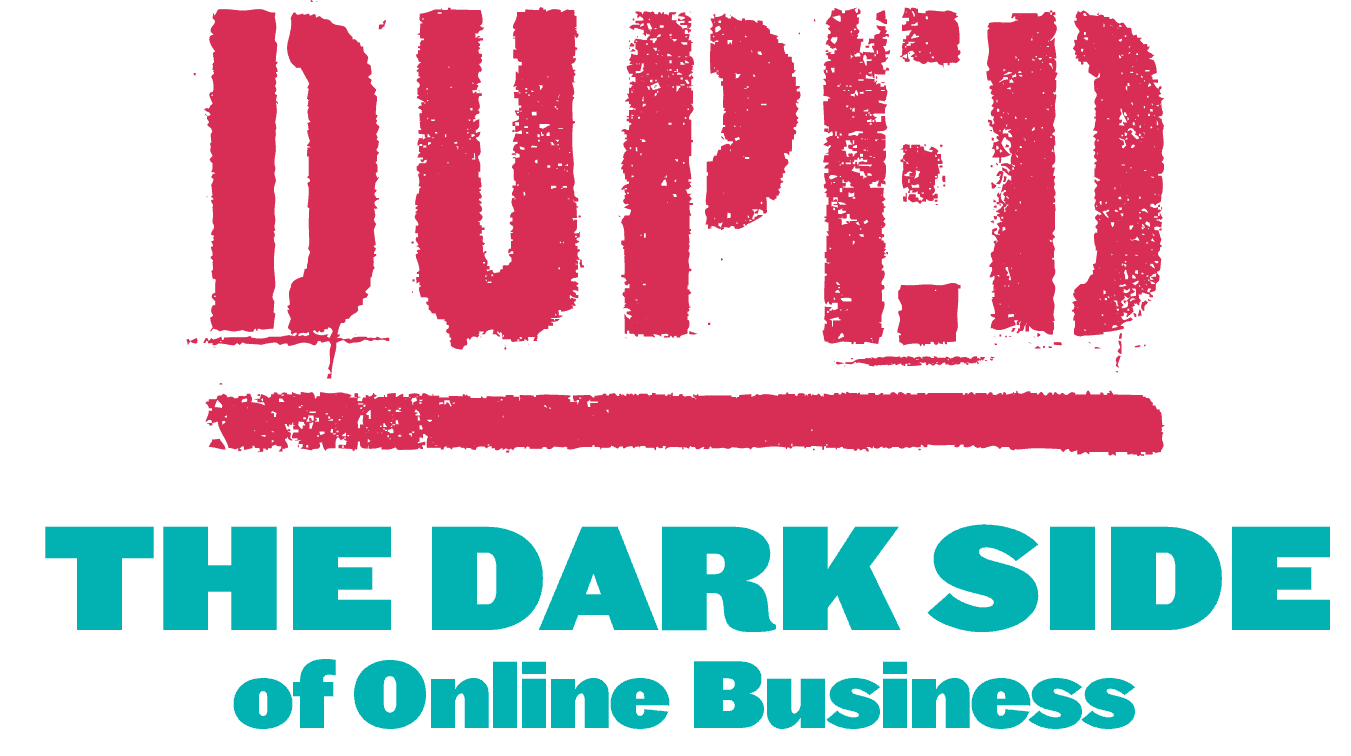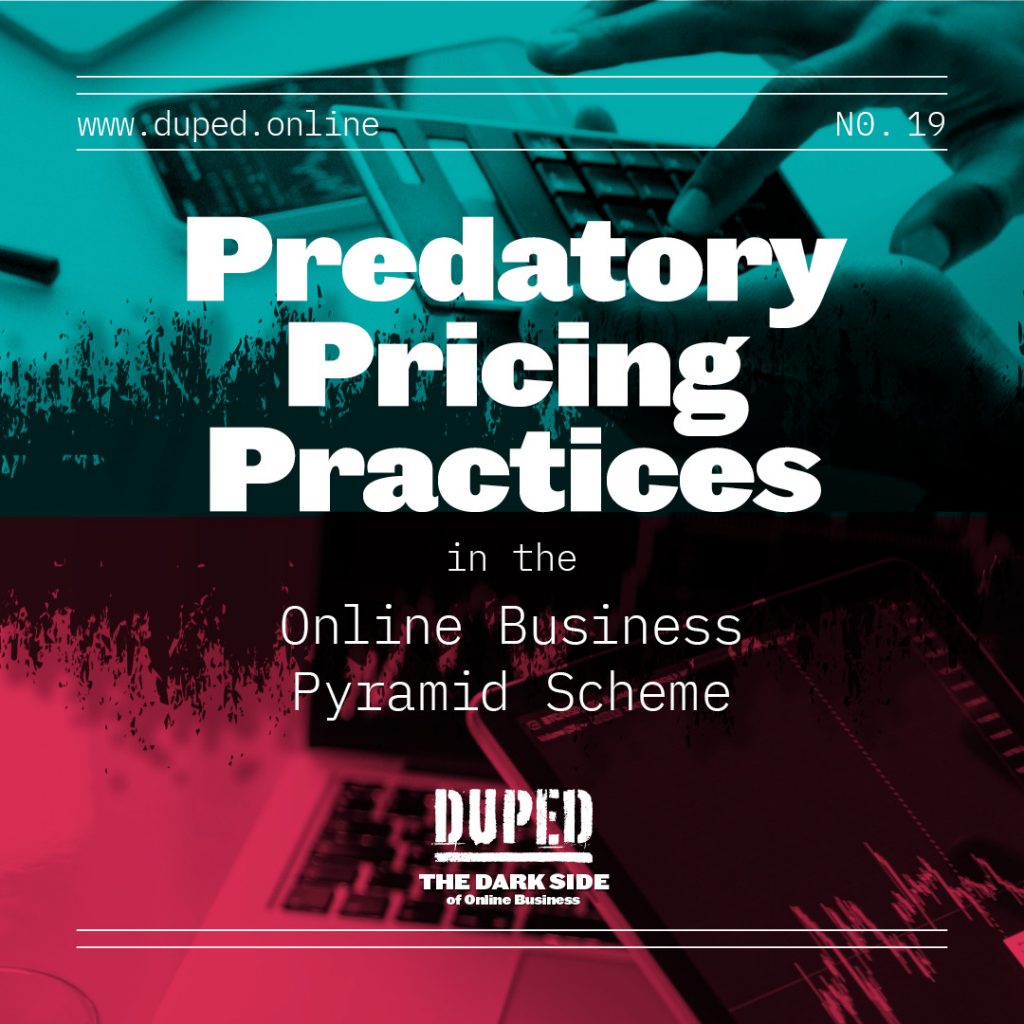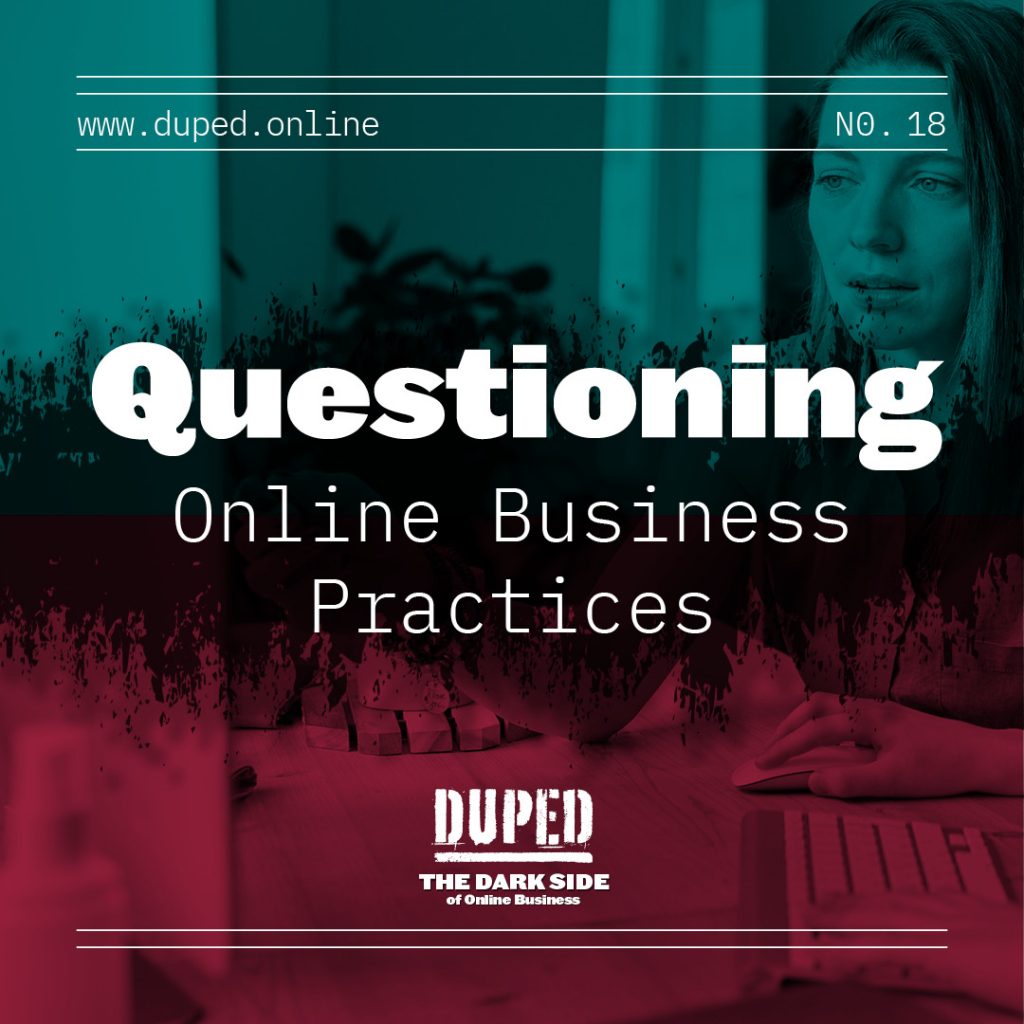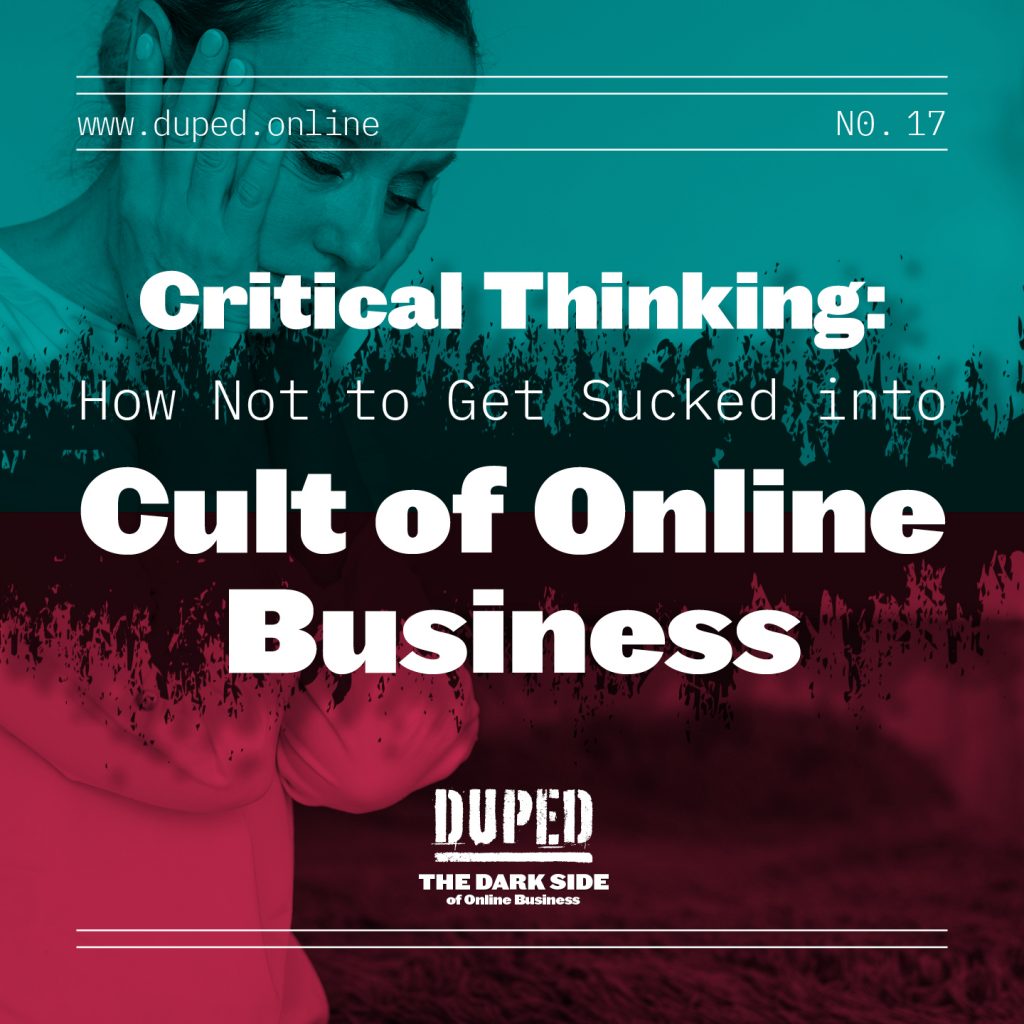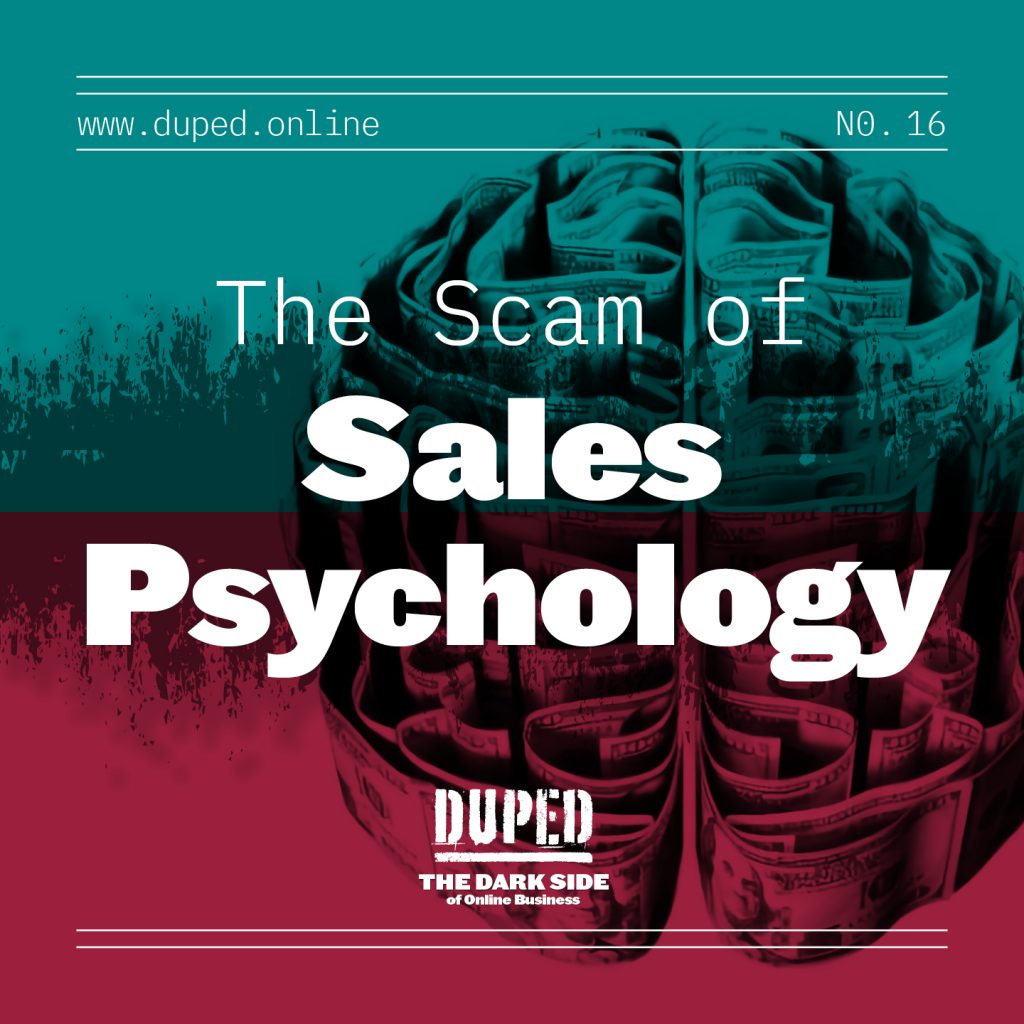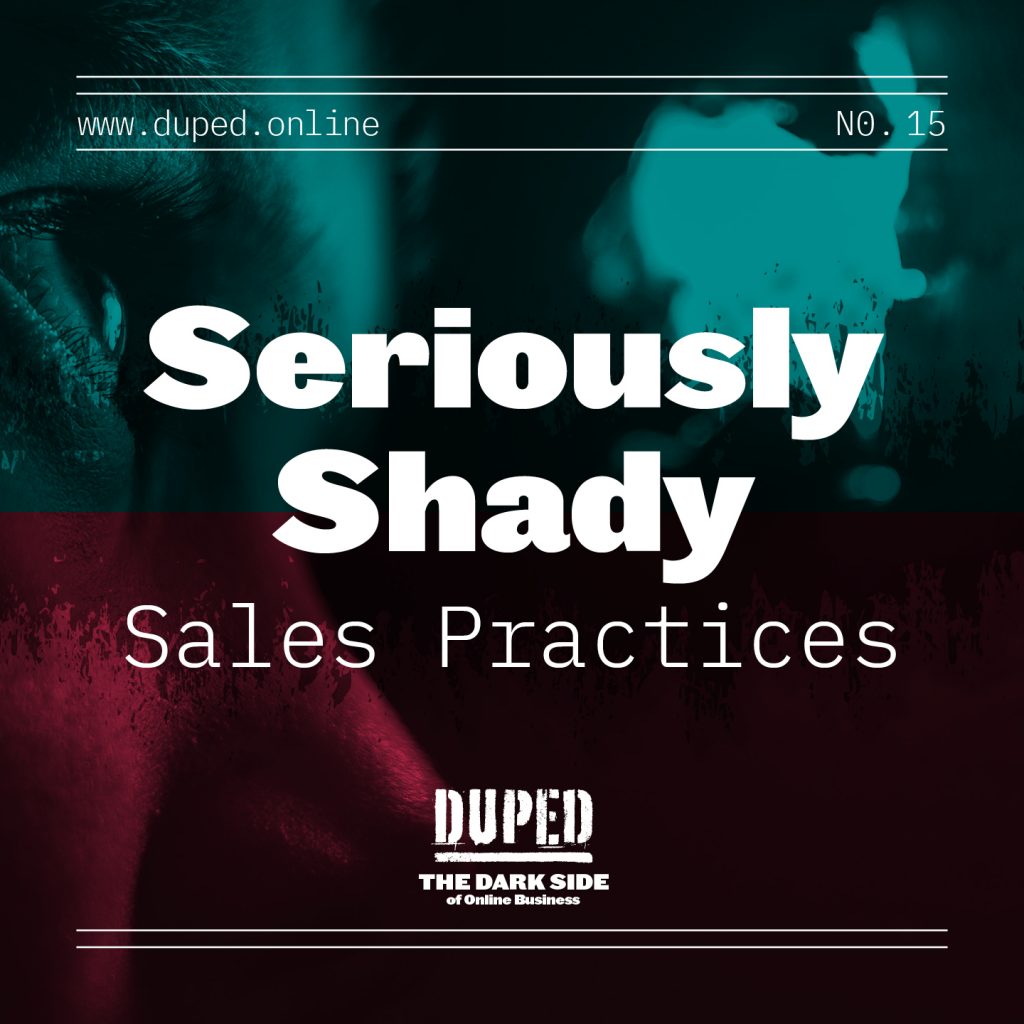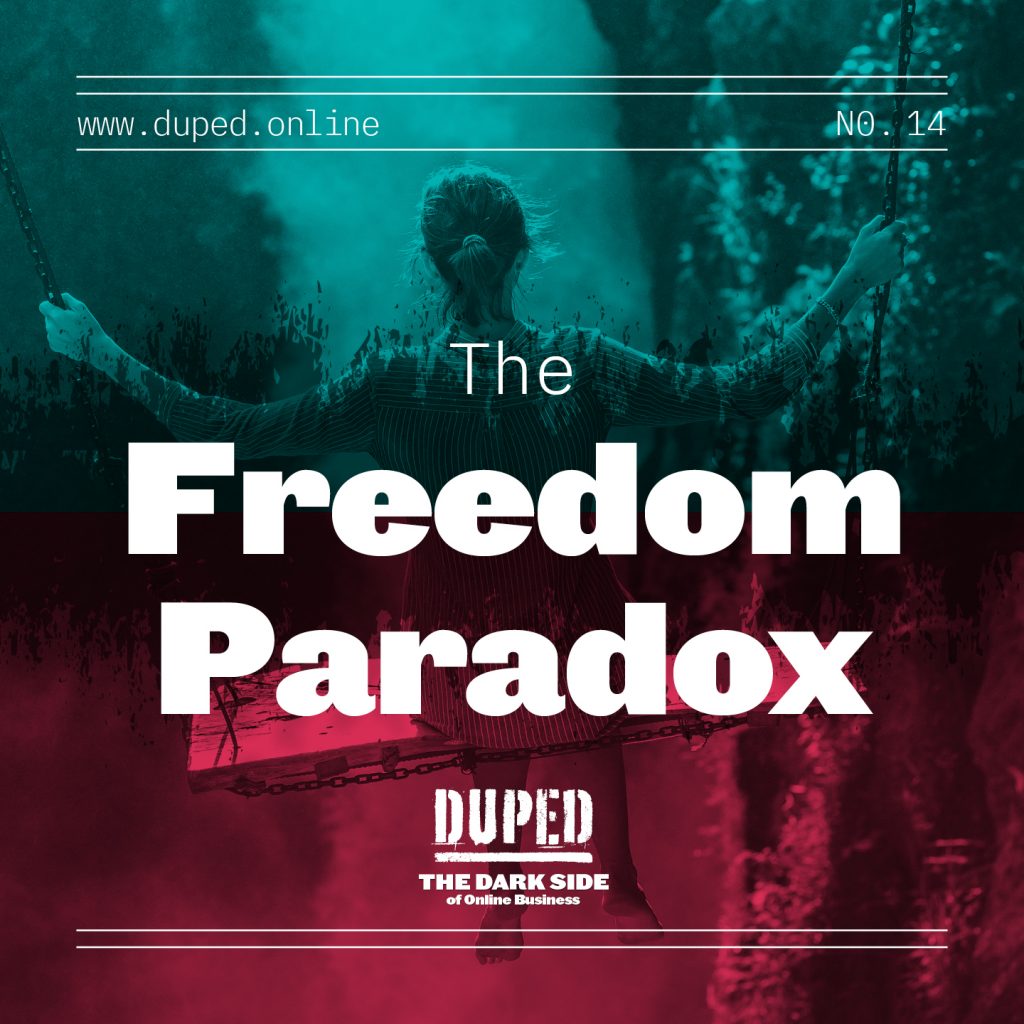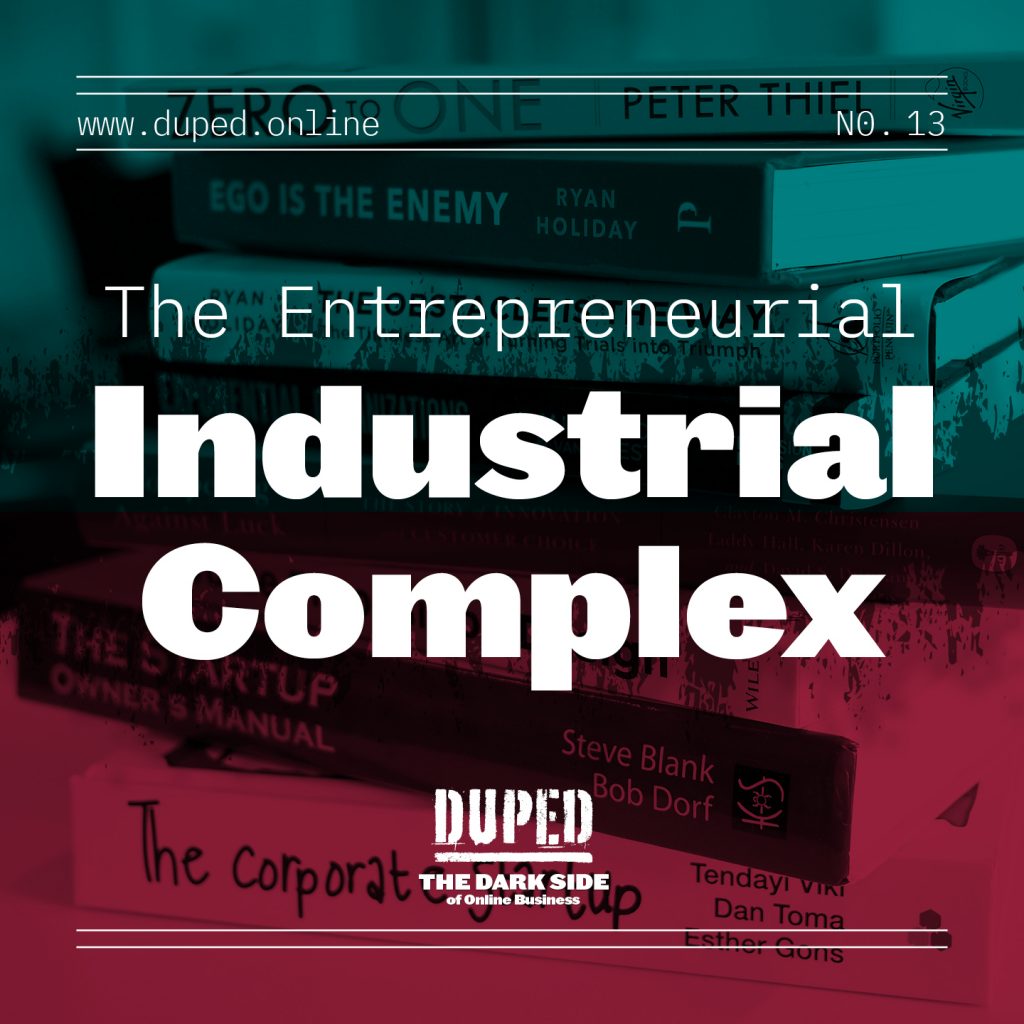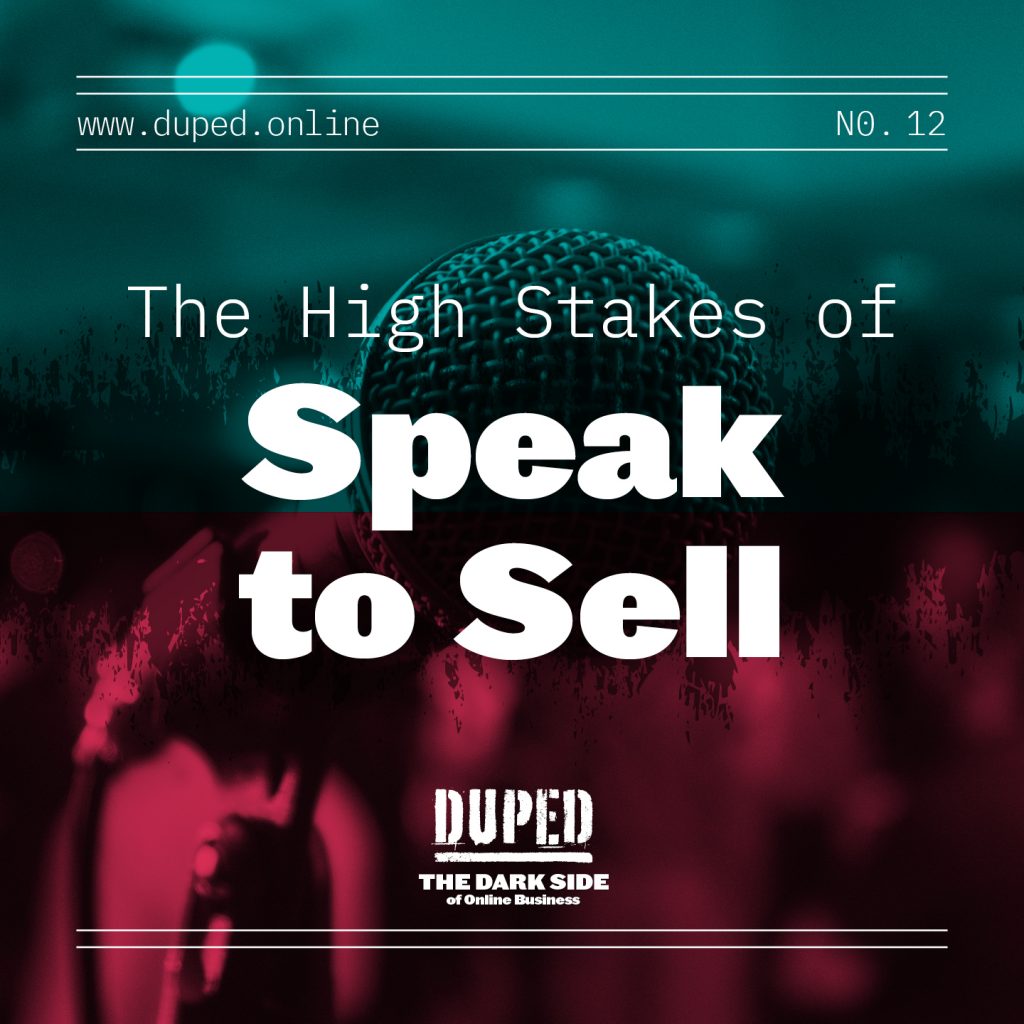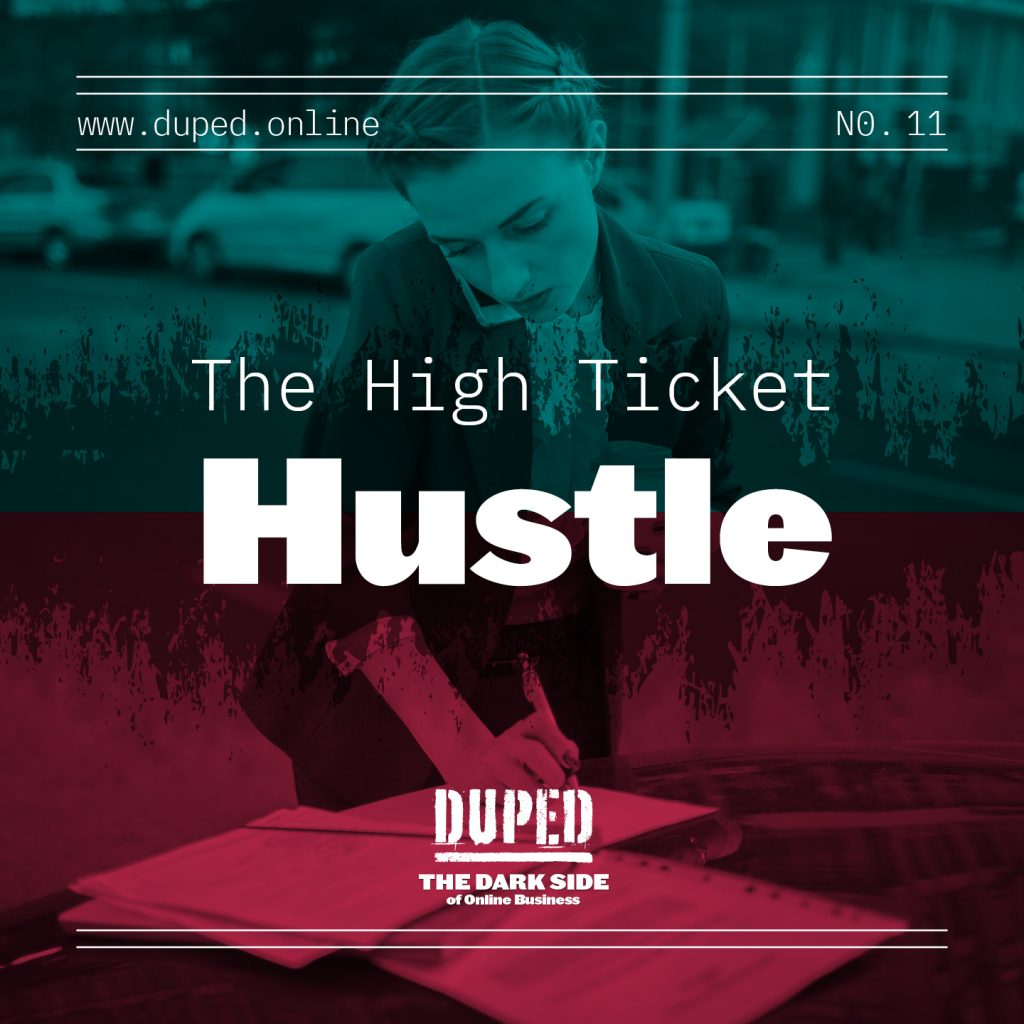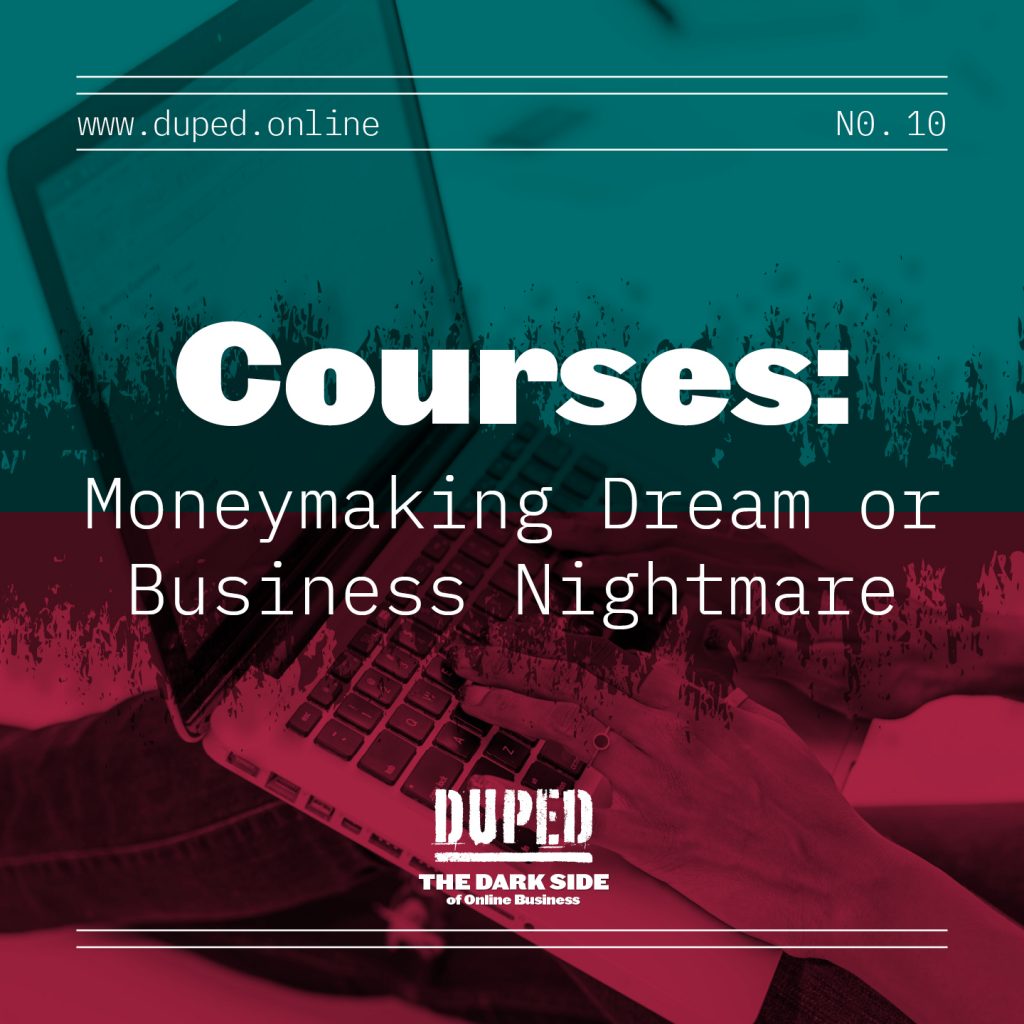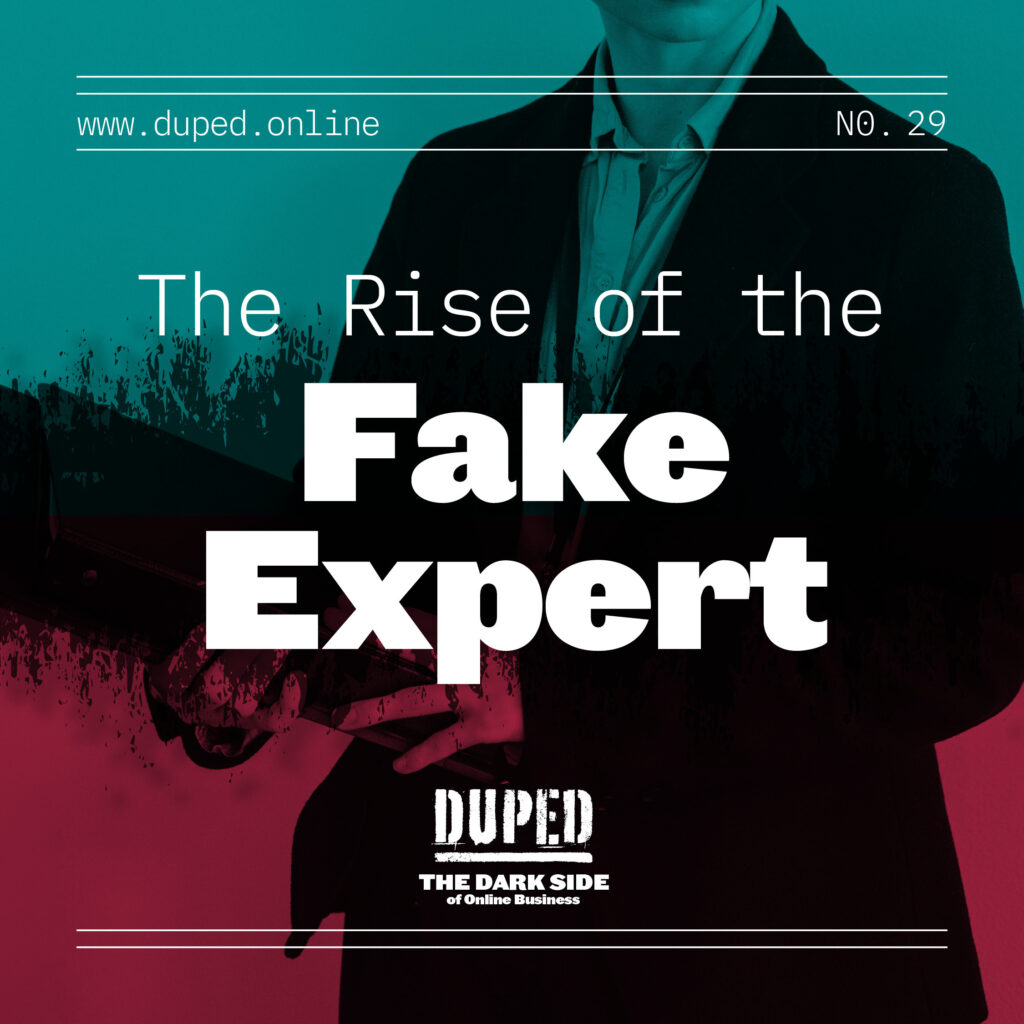
The Rise of the Fake Expert
If I can do it, you can do it too. Teach what you know. If you’ve lived it, you can sell it. These are common marketing messages that say, “hey anyone can have a business.” And if you don’t have much expertise, that’s not a problem – except it is a problem. The Rise of the Fake Expert is one of the leading causes of being duped. In this episode, we’re talking about why it happens and how not to get sucked in.

Why Are There So Many Fake Experts in Online Business?
This question has vexed us for years.
Maggie told me about a book – ground zero for the messaging around “all you need is a story to have a business”. It’s the origin of the rise of the fake expert.
That book is Brendon Burchard’s Millionaire Messenger, and we are going to do a full deep dive as a bonus episode in March for Patreon members because a lot is happening in this book that has not been great for online business.
This is the only non-fiction book I’ve ever read with a disclaimer at the beginning of the book – that the information is for educational and entertainment purposes only and should not be taken as financial or business advice.
Here’s the premise of the book:
“…experts can make millions of dollars working anywhere they want and anytime they want.”
What’s super interesting is how Burchard defines an expert. He says you can build your business around three types of expertise.
- “Results Expert”— Someone who has “been there, done that” and now can teach “that” to others.”
- “Research Expert” — Someone who has extensively researched a topic. His example is Napoleon Hill which is highly problematic because Hill never talked to Andrew Carnegie. Mean Book Club gets into this on their episode on Napoleon Hill.
- “Role Model Expert” — Burchard explains, “If people believe you are a good person, they will ask you for all sorts of advice.”
He also says it’s best to have all three, but taking advantage of the million-dollar expert industry is unnecessary.
Why is Expertise Defined this Way?
It’s simple. This definition of expertise casts the widest net possible. Celebrity entrepreneurs like Burchard and others want as many people as possible in the course.
Essentially, they create a market of “experts”. Many of these experts only have their own lived experience to bank on, yet, people buy from them as they sell the million-dollar dream.
Before we dive into the harm of the “fake expert,” let’s talk about what being an expert means – because I worry that some of you might be thinking, “Am I expert enough” or am I one of these fake experts?
What Does Being an Expert Mean?
If you’re listening to this podcast, you are not the problem.
Cambridge Dictionary defines an expert as “a person with a high level of knowledge or skill relating to a particular subject or activity.”
Over on the Rebel Uprising podcast, Michelle’s been doing some work around what expertise is and I’ve realized that one of the biggest hallmarks of being an expert is that people “don’t feel expert enough.”
That’s because experts tend to be curious with a consistent craving to know more. To dive deeper into their expertise. They realize their expertise is just a tiny speck in the ocean of knowledge.
We firmly believe that experts can apply the way they think and their knowledge to a variety of situations and problems to help their clients.
Whereas fake experts act as the definitive source. They have a proven formula that works for EVERYONE! If their system doesn’t work for you, then it’s your fault, and you didn’t execute it correctly.
Why We Get Duped by Fake Experts
The big problem is that pseudo-experts tend to be great at marketing.
They’re the ones showing up consistently online. Most marketing and business programs are designed for this group. Those programs play to their strengths and not experts. The fake experts are the top-of-mind “experts” whereas real experts are harder to find.
Now, I don’t mean that everyone popular is a fake expert – there is nuance here. But the people who are the best at what they do.
Last season on Michael Lewis’ podcast Against the Rules, he discusses why experts are so unrecognized and overlooked in our culture.
In his podcast, he argues that experts suck at communicating and promoting their expertise. He explained this to Sean Illing, the host of Vox Conversations.
“They do suck at telling their story. This is true. As a rule. Not always, but as a rule. And part of the reason is the kind of people who sit there thinking about how to market themselves aren’t the kind of people who are developing these exquisite expertises. The kind of person who develops the expertise, it’s essentially kind of a local thing. It’s a narrow, specialized thing and they’re not thinking about how to broadcast it and how to make themselves famous and all that.”
We want to emphasize this part: the kind of people sitting there thinking about how to market themselves aren’t the kind of people developing this exquisite expertise.
We can’t tell you how many people have come to work with Michelle on their messaging after being swindled by another program or mastermind.
I’m dedicating my work to helping experts get known and hired. I believe the only way we can change online business for the better is to make the experts doing the great work visible – help them be top of mind.
But until Michelle’s audacious vision comes to pass…
How Can You Tell if a Person is an Expert?
At Duped, we are always dedicated to helping you vet the people you’re thinking about working with, so we have some guidelines:
- Check out their about page. Do they answer the question of “what makes them credible?” Or is it just a “bull-shit backstory?” If you don’t know why they are qualified to do the work that they do – run away.
- Go one or two levels down. If they mention their coach or mentor, go figure them out. If they’re touting a certification and you don’t know anything about it, go see if it’s legit. Things are not always what they seem.
- Check out how they market. Are they highlighting their expertise through their content? Or is it all income claims, lifestyle, and proven formulas for success? Do they rely heavily on their personal success to make a case for why you should trust them?
- Watch out for the BFF Next Door. Liking someone in an online business is dangerous. Do you like them more than you should? Is the relationship just one-sided? Are you engaged in a parasocial relationship? They are not your friend!
- Follower count + income does not an expert make. Money and a huge audience don’t mean someone is an expert in their field. It means they are great at marketing.
Links for this Episode:
- The Millionaire Messenger by Brendon Burchard
- Mean Book Club Episode on Napoleon Hill
- Cambridge Dictionary: Definition of Expert
- Rebel Uprising podcast
- Against the Rules Podcast
- Vox Conversations
- Duped: Certifications: Credibility Booster or Money-Making Scheme
- BS-Free Podcast: How to Spot a Celebrity Entrepreneur (2021 Edition)
- The Great Practice Myth: Debunking the 10,000 Hours Rule
- Mike Winnett Contrapreneur
- Duped: Coaching, Consulting and the Chaos of Online Business
- What is a parasocial relationship?
Join the

Patreon
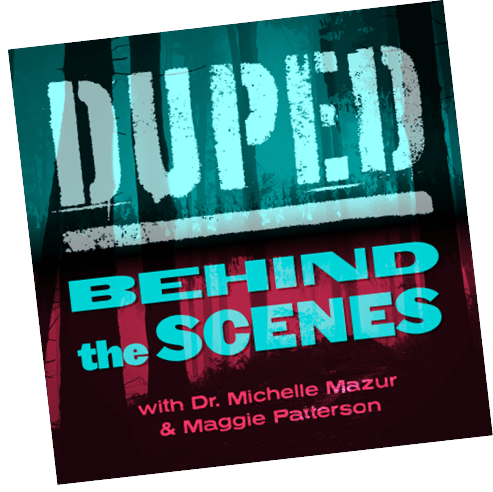
for only $7/month and get a
monthly bonus episode,
behind-the-scenes content
and more.
